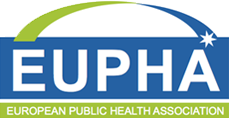


Joint Statement by the European Public Health Alliance (EPHA) and the European Public Health Association (EUPHA)
The COVID-19 crisis is demonstrating the potential of digital health technology to manage some of our greatest public health challenges. In critical times, digital solutions can clearly play a vital role for epidemiologists and public health practitioners involved in the development and implementation of surveillance systems for infectious diseases and environmental hazards, and in assessing the most appropriate interventions for dealing with disease outbreaks and pandemics. As EPHA and EUPHA envision a more people-focused approach to the digital transformation of health and care by ensuring access and affordability, inclusion, diversity and transparency, the intended and unintended effects around these new technological developments must also be critically addressed. Protecting data, privacy and fundamental rights should not be side-lined in the face of urgent problems like preventing the spread of a virus.
The COVID-19 emergency seems to have opened a door to digital technologies being used more widely to advance public health, such as the sudden surge of telemedicine services across Europe. Many governments, companies and citizens’ movements have developed digital solutions and mobile health (mHealth) initiatives to keep the population informed and help manage the crisis situation. From drones repurposed for public health messaging to symptom checkers and more intrusive tracing and tracking apps, a range of solutions are helping to tackle the challenges posed by the pandemic. Mobile applications in particular have the potential to improve public health surveillance by bolstering contact tracing strategies to contain and reverse the spread of pandemics. Beside smartphone apps, features such as geolocation (via GPS) and social media entries may allow, under certain conditions, for better monitoring and tracking of situations in real-time and enable faster responses in the right location, including the notification of at-risk individuals.
In COVID-19 times, communicating the purpose, objectives and direction of digitalisation in public health is increasingly important as data-driven solutions become more common, presenting new ethical challenges. Artificial Intelligence (AI) occupies a central role thanks to the application of Machine Learning. However, this transformation should not change long-held public health goals and values. A continuous debate on emerging ethical issues, coupled with periodic revision of available evidence, relevant guidelines and policies, is needed. Digital health should contribute to value-based health systems. It should be well planned, coordinated and governed at national and at European level. Yet the broad spectrum of activities covered by public health adds a layer of complexity when envisaging a framework for ‘public health digitalisation’. We need to be honest and realistic about the pros and cons of digital innovation and address the constraints faced by public health systems in a more strategic way. An inclusive public dialogue involving civil society must take place to ensure that European health systems are able to evolve equitably.
To fully leverage digital innovation in public health, EPHA and EUPHA aim to create a suitable environment for the introduction of emerging digital technologies, including by better informing policymakers about real societal needs and by training public health professionals, patients and other end users so they can effectively engage with digital tools in practice, policy and research. One thing is certain: the use of digital tools to support an effective public health response is relevant during the current COVID-19 outbreak and in the future will become even more so. In this regard, EPHA and EUPHA confirm their roles as an aegis under which the implementation of digital technologies will be steadfastly safeguarded alongside the paramount principles of inclusion, rights and equity.


